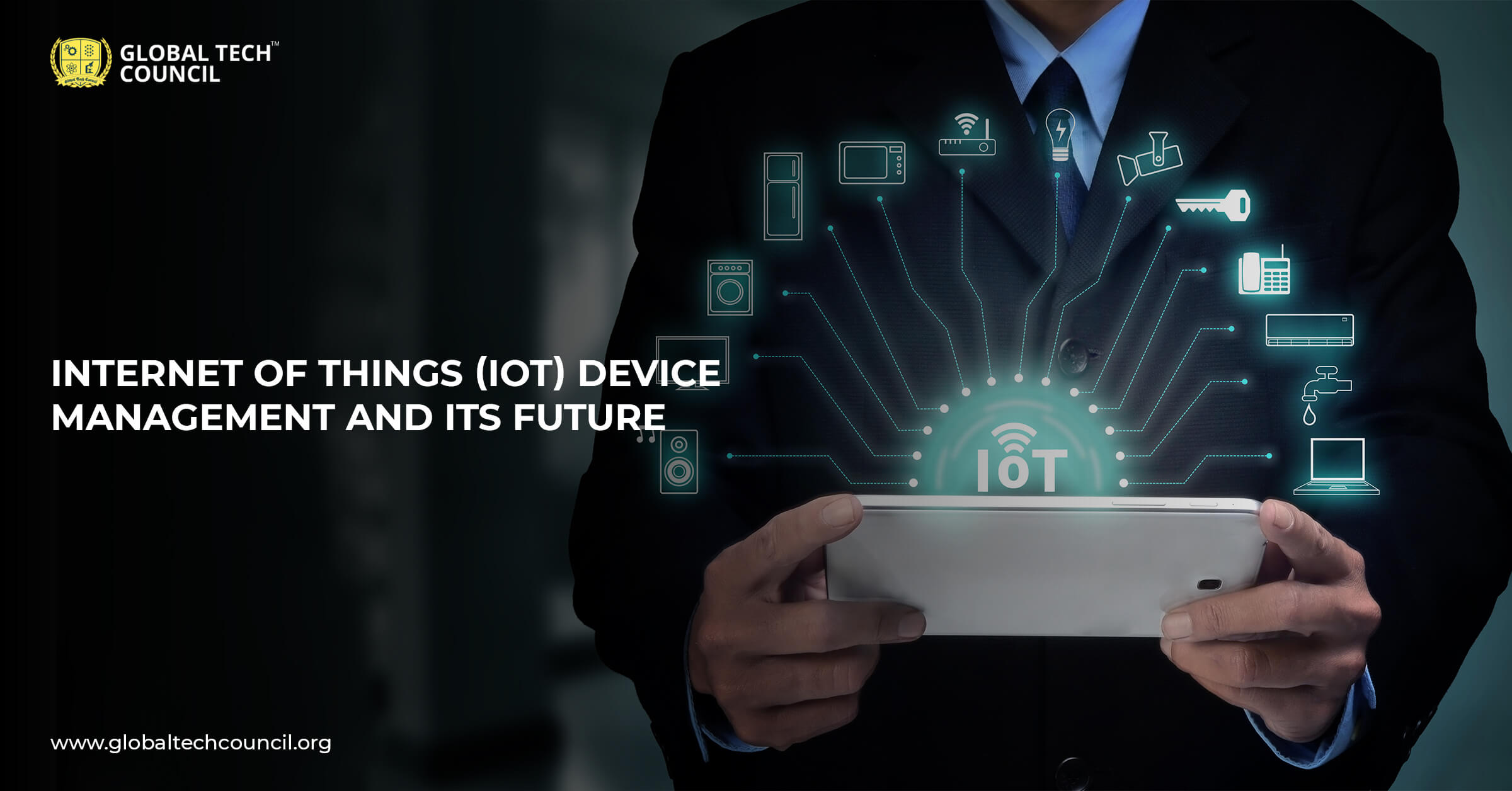
With smart devices all around us, it is difficult not to talk about the Internet of Things. Safe to say, a future without internet-linked devices seems impossible. To begin with, Internet of Things experts have incorporated IoT in cars, merchandise, and home decor. Additionally, manufacturers are connecting thousands of devices to IoT. It gets difficult to check and map all the devices manually. Also, there is a chance of error. Therefore, we require an IoT device management system.
We will first understand what the Internet of Things is and IoT certifications. Next, we will discuss why IoT is important and its management. Additionally, we will also talk about the future of IoT management and what factors will affect it.
Understanding IoT
The Internet of Things is an interconnection of billions of digital devices which collect a copious amount of data. Ultimately, they contribute to and complete the human-made goals without our intervention — for example, a mobile-controlled fireplace. Even a kid’s toy car could be an IoT device.
You can develop such software after completing Internet of Things certifications courses.
IoT Device Management
With a steep increase in the number of IoT devices, it has become a painstaking task to manage every device manually. Moreover, humans are more likely to make errors. Hence, we need Internet of Things Management (IoTM) to automate and quicken the management.
Internet of Things experts can develop such apps and platforms which will establish a connection and obtain information about a device. Furthermore, they can perform complex tasks like updating Machine Learning models and updating software.
However, not enough people in the industry are qualified with IoT training certifications. Likewise, there is a scope for improvement in IoT. The information available is vulnerable, and no organization is immune from attacks. We need to implement cyber strategies for security.
The Future of IoT Device Management
Organizations and Internet of Things experts will design technology that is goal-specific. The future of IoT stands on a business-oriented approach. For instance, hospitals might add motion sensors on wheelchairs to monitor patients’ activity.
Although IoT might not become a job focus, IoT certifications will be a part of people’s job profiles. It might emerge as a way industries set and complete tasks. IoT devices can hoard data and use machine learning (ML) tools to find solutions. Additionally, it can improve efficiency and aid IT personnel and people in business.
It is also worth noting that data analysis by IoT devices is a step to complete Artificial Intelligence. Organizations are spending heavily on AI and Machine Learning which directly correlates with IoT devices. IoT training certifications will help people learn about ML and its development. Consequently, traditional methods of analyzing data will evaporate, and AI will take over.
IoT devices that are independent of the application layer service will appeal to consumers. Further, a standardized process will manage such devices. A consumer must be able to handle a device’s software and firmware securely.
A consumer could try different home automation services without replacing any device. This will work when the IoT industry includes open device management standardization. In brief, we can say that a device’s ownership and management will be under the consumer’s thumb.
Security is the biggest issue why we cannot deploy IoT devices fully-fledged. The cost of adding security results in privacy being compromised. Despite the vendors investing in security, the results are not fruitful. The main reason is that the vendors lack IoT training certifications. Accordingly, in the future Internet of Things experts must consider all the possible threats before deploying an IoT device.
Factors that will Impact the Future of IoT
With ransomware, spyware, and viruses infecting our systems, cybersecurity would need to be the top priority in the future. However, it does not seem likely that organizations consider privacy a concern.
Although manufacturers are increasing the reliability of IoT devices by introducing higher security options, the process is tedious and complex. As the quantity of IoT devices will increase, the task of managing passwords will become more complicated than ever.
Besides security, the nature and purpose of the technology we use will be essential to record. For instance, the older systems were based on the functionality of a particular element. On the contrary, the newer versions are far more networked, capable, and flexible. Moreover, they are complex in their work.
To ensure the efficient working of such systems, the Internet of Things experts must update and maintain the software regularly. Subsequently, the data will be safe and in sync with other components.
Conclusion
Eventually, smart machines and devices will load our homes, offices, and surroundings. The number of IoT devices will arise inevitably. Some might consider it a boon that they can start cooking their dinner by tapping a button. At the same time, others may dream of the old days when AI did not control our lives.
IoT will utilize ML to help us complete our objectives and eventually turn them into business-like goals. It will become an integral part of our lives. And as it is a growing sector, people with IoT certifications can solidify their careers in this field. However, the Internet of Things experts need to modify some aspects of the IoT technology, beginning with cybersecurity issues.
To learn more about the Internet of Things (IoT) and related topics, please follow GLOBAL TECH COUNCIL.